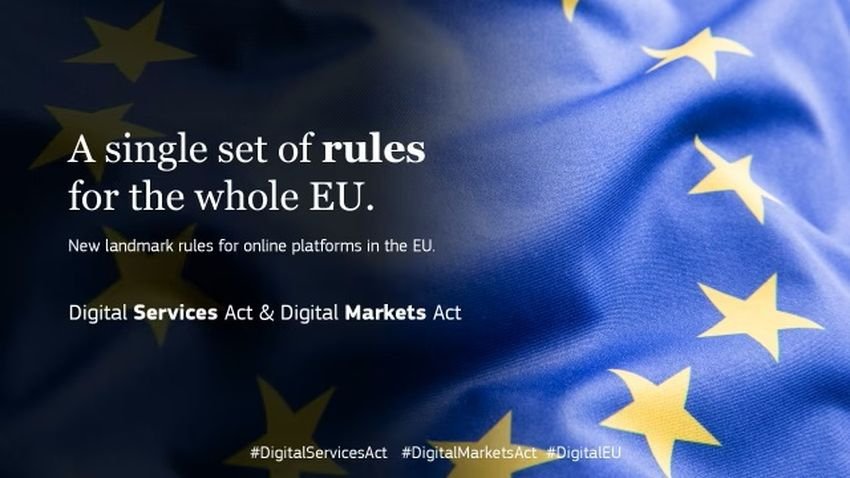The European Union brings into force next week the DMA law, which deals with digital markets, rewriting the rules of the internet and hoping it will force big companies to become much more open.

From November 1, the law on digital markets comes into force in the territory of the European Union Digital Markets Act (DMA), which will forever change the Internet and it will make it much more difficult for a company to become a tech giant.
The EU hopes with the Digital Markets Act to make purchases in the digital sector fairer and more contestable. This law establishes a set of clearly defined operating criteria for "Gatekeepers". Gatekeepers are large digital platforms that provide so-called core services, such as for example online search engines, app stores, messenger services, etc.
Legislation is pending to force companies like the Amazon, Google and Meta to make their platforms more open and interoperable by 2023. This could bring significant changes to what users can do with their devices and apps.
For example, if you have an iPhone, you should be able to download apps not only from the App Store but from other app stores or the web. The DMA will require dominant platforms to allow open use to smaller competitors and could force Meta's WhatsApp to receive messages from competing apps such as Signal or Telegram or prevent Amazon, Apple and Google from only accepting their own apps and services.
Although the DMA goes into effect next week, technology platforms are not required to comply immediately. The EU must first decide which companies are big and established enough to be classified as 'Gatekeepers' and tighten the rules against them.
The list of Gatekeepers is expected to be announced in the spring of 2023 and will likely include the top twelve major companies. With this announcement, companies on the list will have six months to comply.
The EU has imposed in the past large fines against of Google, Apple and other companies for antitrust policy. The bottom line is that the EU is changing and in line with the GDPR digital privacy law, the DMA is expected to lead to changes in the way technology platforms serve users.
The companies technologyThey will also soon have to deal with a second sweeping EU law, the Digital Services Act (Digital Services Act), which requires algorithmic risk assessments and automated decision-making disclosures to be made. This law could force social platforms such as TikTok to open up their data to external EU audits.
The EU is also considering specific rules for artificial intelligence, which could ban certain uses of the technology.





